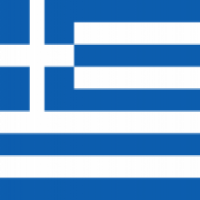Summary:
A Greek biotech SME company offers a rapid test for the detection of SARS-CoV-2 in common surfaces such as metal, plastic, glass, paper and stainless steel. The rapid surface test is a valuable tool for several sectors enabling the companies to monitor and mitigate the spread of COVID-19 in their facilities. The Greek company is looking for commercial agreements with companies or end-users in fields such as healthcare, food industry, hospitality and public organizations etc.
Description:
A Greek biotech SME company is specialized in solutions with cutting-edge diagnostics tests for the food, feed & clinical diagnostics industries. The company has managed to produce swift, reliable and innovative immunological tests. The decisive results in limited amount of time meet the needs of food and feed ecosystem. In April 2020, the company has expanded its activities into clinical diagnostics developing test kits for COVID-19. Recently they have developed a sensitive, robust and fast technology that enables the detection of detection of SARS-CoV-2 Nucleocapsid Protein antigen (NP) in swabs of common surfaces.
The rapid surface COVID 19 test is a qualitative, lateral flow immunoassay for the detection of the Nucleocapsid protein (NP) in environmental samples. In this test, antibodies specific to the NP are coated on the test line region of the test card. During testing, the specimen reacts with the antibodies to NP that are coated onto particles. The mixture migrates up the membrane to react with the antibodies to NP on the membrane and generate one colored line in the test region. The presence of this colored line in the test region indicates a positive result. To serve as a procedural control, a colored line will always appear in the control region if the test has been performed properly.
All recovery experiments were carried out by spiking the following surfaces: Polyvinyl Chloride (PVC), stainless steel, glass, food packaging, laminate countertops, metal door handles.
The technology allows anyone to minimize the spread of this virus in a facility, such as restaurants, airplanes, public and private places among others.
The efficiency of the method has been validating using the determination of the Limit of Detection (LOD). The lowest detectable concentration of an analyte in a method is known as LOD. In this case, the company has checked the concentration of SARS-CoV-2 in the rapid surface test. The LOD is the level at which 95% of the replicates are characterized as positive.
The test is designed to detect concentrations of the virus that pose a risk of infecting individuals who touch a contaminated surface. In addition, is a highly sensitive test that can detect virus concentrations 300x times less than what scientists believe is a plausible amount of virus that may be deposited on a surface (according to a reference study this would be 3.38 × 105 TCID50 /ml.)
The Greek company is looking for commercial agreements with companies or end users mainly in the fields of healthcare, food industry, hospitality, public organizations and other such areas.
Type (e.g. company, R&D institution…), field of industry and Role of Partner Sought:
The Greek company is looking for companies or end-users for commercial agreement for providing the rapid test. Companies dealing with restaurants, airplanes, hotels, all public and private places are ideal for partnering.The Greek company could provide any assistance and guidance needed regarding the application of the product.
Stage of Development:
Already on the market
IPR Status:
Patent(s) applied for but not yet granted
Comments Regarding IPR Status:
The IPR are related to the lateral flow immunoassay and the antibodies
External code:
TOGR20210308001








